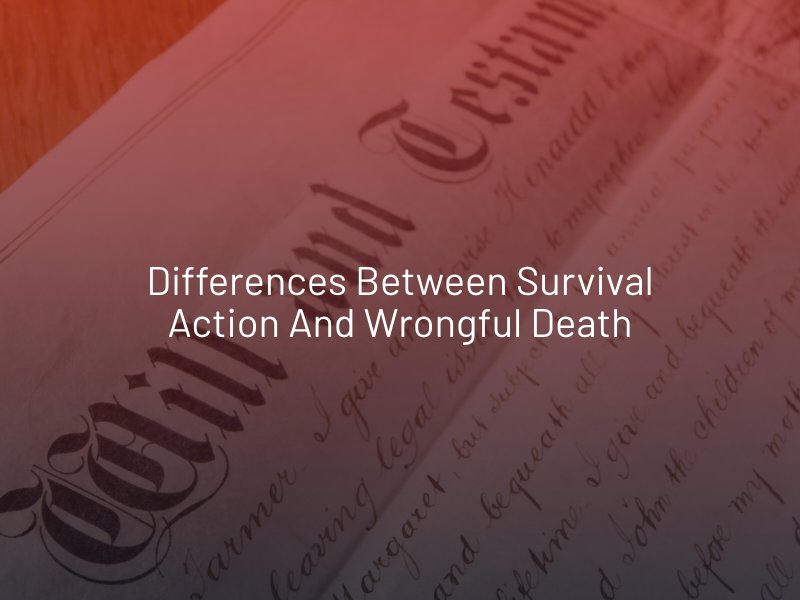Differences Between Survival Action and Wrongful Death
When someone is killed as the result of another individual or company’s negligence in Nevada, there are two types of lawsuits that can be brought against the responsible party. Those include a survival action and a wrongful death lawsuit.

What Is a Survival Action?
A Nevada survival action is designed to compensate the deceased’s estate for the losses their loved ones suffered before their death. Another way to look at it is the compensation the victim could have pursued by filing a personal injury lawsuit had they survived. Therefore, the estate can recover damages that include:
- Accident-related medical expenses accrued before death.
- Lost income up until death.
- Loss of consortium (loss of love, companionship, assistance, affection, sexual relations, etc.)
- Conscious pain and suffering, and emotional distress the deceased experienced between the accident and their time of death.
- Fees for Las Vegas personal injury lawyer services
Conscious pain and suffering can refer to the physical pain the deceased was in due to the injuries that caused their death, as well as their mental suffering, such as feelings of fear knowing their death was imminent. When awarding pain and suffering damages, a jury will typically consider:
- The nature, duration, and extent of the victim’s physical pain and suffering;
- The victim’s mental anguish, apprehension, discomfort, or sorrow.
Since the victim can no longer testify to their pain and suffering, it can be challenging to prove this type of damages. In cases involving a defendant (at-fault party) who acted with extreme recklessness or an intentional disregard for the safety of others, punitive damages may also be awarded. However, this type of compensation is reserved as punishment for egregious behavior.
What Is a Wrongful Death Claim?
A survival action is a lawsuit separate from a wrongful death claim, but the two can often be combined. The primary difference from a survival action is that the deceased’s estate brings a wrongful death claim to recover damages from the negligent party for the losses caused by the victim’s death. For example:
- Funeral and burial expenses;
- Loss of financial support;
- Loss of services;
- Loss of companionship, comfort, assistance, and affection;
- Loss of sexual relations; and
- Loss of the deceased’s training and guidance.
Is There a Time Limit for Filing a Survival Action or Wrongful Death Claim?
In Nevada, a law known as the statute of limitations imposes a time limit on how long a survival action or wrongful death claim can be brought. When a person is injured, they have two years from the date of the accident to file a personal injury lawsuit.
If the victim dies due to the accident before the two-year deadline, the deceased’s estate can still pursue the claim on their behalf as a survival action. As previously stated, a survival action can be combined with a wrongful death lawsuit. Wrongful death lawsuits must be filed within two years of the victim’s death. If the estate executor or administrator fails to meet these deadlines, the surviving family will lose their right to pursue compensation.